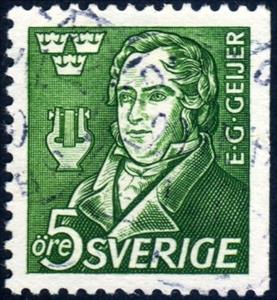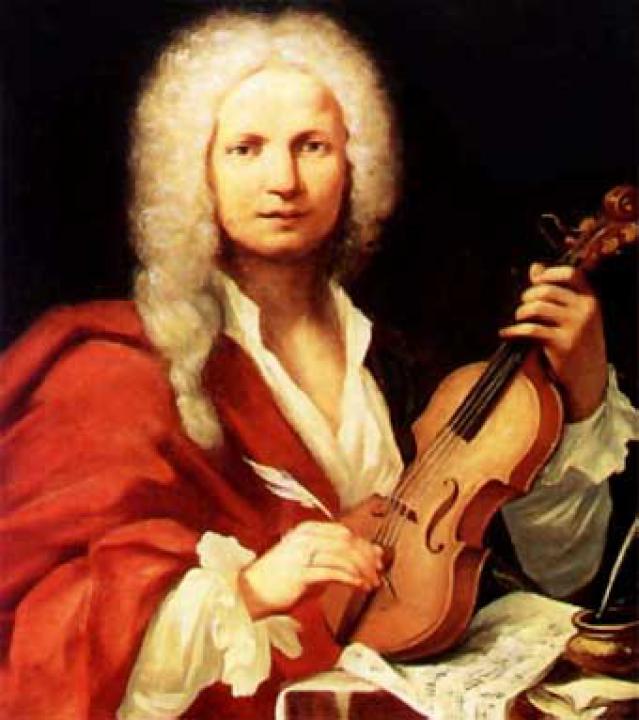Stamp: Geijer, Erik Gustaf (Sweden 1947)
Geijer, Erik Gustaf (Sweden 1947)
23 April (Sweden ) within release Geijer, Erik Gustaf goes into circulation Stamp Geijer, Erik Gustaf face value 5 Swedish öre
| Stamp Geijer, Erik Gustaf in catalogues | |
|---|---|
| Michel: | Mi: SE 327Dr |
| Stamp Number: | Sn: SE 385.r |
Stamp is vertical format.
Also in the issue Geijer, Erik Gustaf:
- Stamp - Geijer, Erik Gustaf face value 5;
- Stamp - Geijer, Erik Gustaf face value 5;
- Stamp - Geijer, Erik Gustaf face value 90;
- Stamp - Geijer, Erik Gustaf face value 5;
- Booklet - Geijer, Erik Gustaf face value 1;
- Se-tenant - Geijer, Erik Gustaf face value 2*5;
Stamp Geijer, Erik Gustaf it reflects the thematic directions:
Commemorations are a type of religious observance in the many Churches of the Anglican Communion, including the Church of England. They are the least significant type of observance, the others being Principal Feasts, Principal Holy Days, Festivals, and Lesser Festivals. Whereas Principal Feasts must be celebrated, it is not obligatory to observe Commemorations. They are always attached to a calendar date, and are not observed if they fall on a Sunday, in Holy Week, or in Easter Week. In Common Worship Commemorations are not provided with collects or indications of liturgical colour. However, they may be celebrated as Lesser Festivals if local pastoral conditions suggest it.
A composer is a person who writes music. The term is especially used to indicate composers of Western classical music, or those who are composers by occupation. Many composers are, or were, also skilled performers of music.
Famous People refers to the fame and public attention accorded by the mass media to individuals or groups or, occasionally, animals, but is usually applied to the persons or groups of people (celebrity couples, families, etc.) themselves who receive such a status of fame and attention. Celebrity status is often associated with wealth (commonly referred to as fame and fortune), while fame often provides opportunities to make money.
A historian is a person who studies and writes about the past and is regarded as an authority on it. Historians are concerned with the continuous, methodical narrative and research of past events as relating to the human species; as well as the study of all history in time. Some historians are recognized by publications or training and experience. "Historian" became a professional occupation in the late nineteenth century as research universities were emerging in Germany and elsewhere.
A musical instrument is a device created or adapted to make musical sounds. In principle, any object that produces sound can be considered a musical instrument—it is through purpose that the object becomes a musical instrument. A person who plays a musical instrument is known as an instrumentalist. The history of musical instruments dates to the beginnings of human culture. Early musical instruments may have been used for rituals, such as a horn to signal success on the hunt, or a drum in a religious ceremony. Cultures eventually developed composition and performance of melodies for entertainment. Musical instruments evolved in step with changing applications and technologies.




